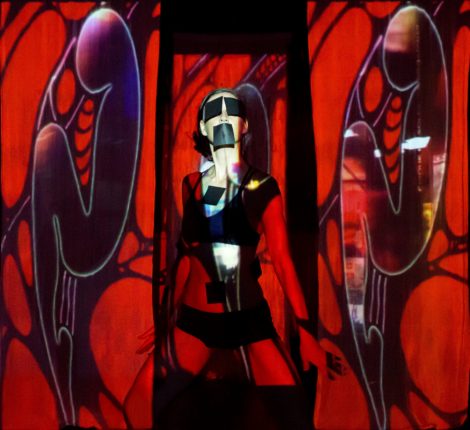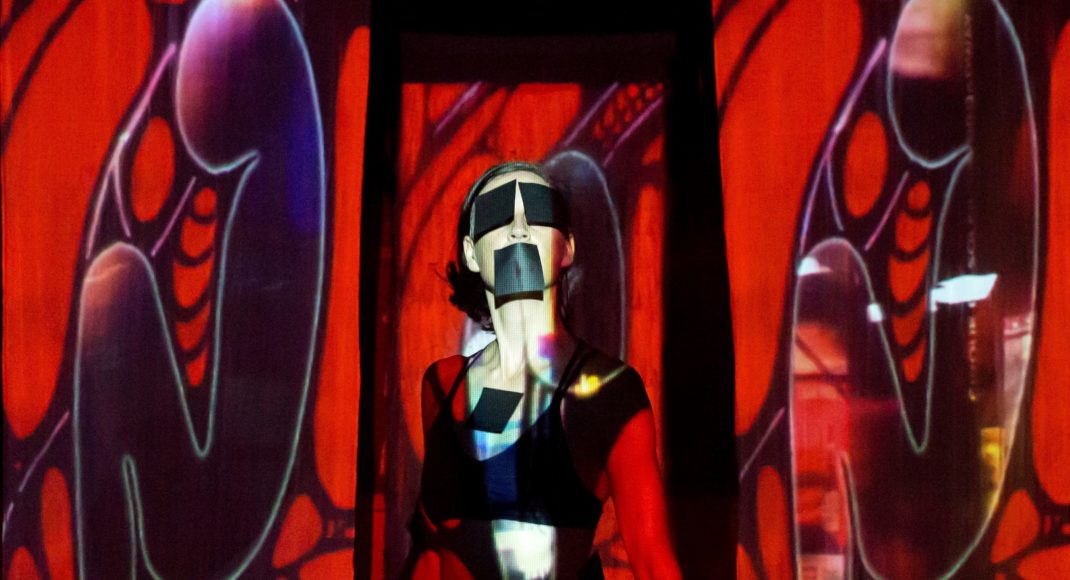4 October 2017. Q Theatre, Auckland. Tempo Dance Festival. Choreography Louise Potiki-Bryant
Reviewed by Jennifer Shennan
Louise Potiki-Bryant gave the premiere and sole performance of Ngaro, the solo work that results from her time on the prestigious Marti Friedlander Residency in New York. (Friedlander, a child orphan refugee to New Zealand from war-torn Europe, became one of the country’s leading photographers, and her portraits of New Zealand artists are the finest we have. Additionally, her bequest of this stimulating residency will ensure that her legacy continues, and how pleased she would be that a choreographer took up the challenge).
The word ‘ngaro’ in Maori means ‘hidden, out of sight, disappeared, absent, missing, lost, destroyed, consumed, passed into, undetected, unnoticed, passed off, passed away, subsided, forgotten, unintelligible, beaten, baffled, at a loss, distressed, oppressed, overcome by emotion, unavenged, unrequited, secretly’. Such are the riches of Maori vocabulary; there are also secondary and tertiary meanings—’fly, blowfly, supposed to represent the life or spirit of a person—or a roller used to drag a canoe—or a piece of wood set up for certain purposes’. It has a further meaning—’to be certain’. So there are all the words one needs to write about this.
This is an important, striking, dark, at times troubling work. Secrets are hinted at, troubles encountered, fears faced and not entirely conquered. There is a yearning … is that for a child? Was there a child not born? The work is enigmatic and its references and symbols tap into the interior of experiences. New York as a busy city full of people seems full of loneliness instead. Video clips are projected onto strip screens that slide across the stage like days and a night across the stage. The creative team—Potiki-Bryant & Paddy Free (video/sound) and Rona Ngahuia Osborne & Paddy Free (costume/set ) are a strong cohort bringing visual and audio depth and dimension to the production. I wish they too had come to share the curtain call.
There is extraordinary courage involved in mounting a work as personal as this one. I do think it a most inappropriate choice of Festival management to have billed it as the opening event of Tempo’s fortnight program however, and would have preferred it in an early evening slot with a quiet korero session to follow, rather than a reception with wine and cheese and chatter. Come the curtain call we had seen a tired, sad, exhausted slip of a woman talking a bow, a wan smile and then an exit. It just made you want to go after her, hug her, and assure her that everything will be alright. There’s a word for that in the dictionary too. It is ‘aroha’.
Jennifer Shennan, 14 October 2017
Featured image: Louise Potiki-Bryant in Ngaro. Photo: © Tessa Chrisp

